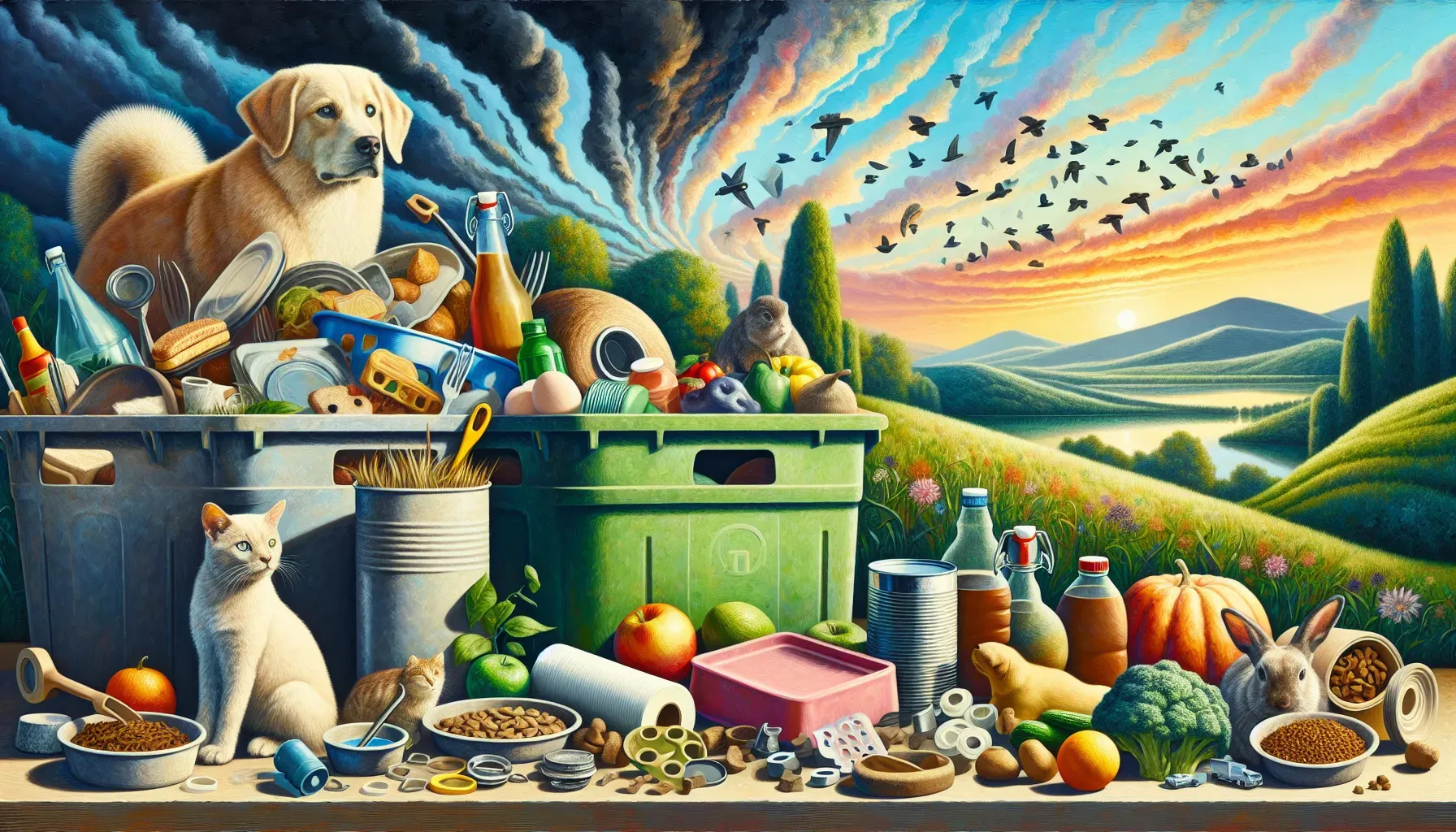
The zero-waste movement in the pet industry represents a collective effort towards minimizing waste generation and promoting sustainable practices. This movement emphasizes reducing, reusing, and recycling to limit environmental impact. It's crucial to realize that every small change contributes to a significant positive impact on our planet. At Tails' Talks Blog, we understand the importance of this movement and are committed to empowering pet owners to make informed choices for their furry companions.
Understanding the Zero-Waste Movement in Pet Care
Reducing your pet's carbon pawprint involves conscious decisions in various aspects of their care. It starts with mindful consumption and responsible disposal. From choosing eco-friendly products to implementing energy-efficient practices, every step counts. We'll take you through a comprehensive guide, providing actionable tips for reducing your pet's environmental impact without compromising their well-being.
How to Reduce Your Pet’s Carbon Pawprint
Food scraps and pet waste constitute a significant portion of household trash. As responsible pet owners, we can implement composting as an effective method to minimize waste. However, it's essential to approach pet waste composting with caution due to potential health hazards. Our expert insight will guide you through the safe and effective composting of your pet's waste, transforming it into valuable organic matter for your garden while adhering to best practices.
Composting Your Pet's Waste: A Safe Approach
Plastic pollution presents a critical environmental challenge worldwide. In the context of pet care, plastic-free alternatives are gaining momentum as more pet owners embrace sustainable living. Transitioning to a plastic-free pet routine involves conscious product choices and lifestyle adjustments. We'll explore innovative solutions and eco-friendly alternatives, guiding you towards a plastic-free environment for your pets.
Embracing a circular economy mindset is pivotal in achieving sustainable pet care. By adopting practices that prioritize resourcefulness and durability, we can contribute to minimizing waste generation. From choosing refillable products to creatively repurposing items, incorporating circular economy principles into pet care can be rewarding for both pets and the environment. We'll share practical tips on integrating circular economy practices into your pet care routine.
Transitioning to a Plastic-Free Pet Routine
Traditional pet care products often contribute to environmental strain due to their composition and disposal impact. Fortunately, eco-friendly alternatives abound, offering sustainable options without compromising efficiency. Our exploration of sustainable swaps encompasses various aspects of pet care, including grooming products, toys, and bedding materials. Discover how these alternatives can align with your zero-waste commitment while promoting your pet's health.
Implementing Circular Economy Practices in Pet Care
Creating a community of like-minded individuals who prioritize sustainability in pet care is integral to fostering positive change on a larger scale. Engaging with fellow eco-conscious pet owners provides opportunities for knowledge sharing, support, and collective action towards sustainable initiatives. At Tails' Talks Blog, we encourage the building of such communities and celebrate the contributions of every environmentally aware pet owner.
Eco-Friendly Alternatives: Sustainable Swaps for Pets
Real-life success stories inspire and motivate others to embrace positive change. By spotlighting pets and owners who have successfully adopted sustainable practices, we aim to encourage our readers on their journey towards zero-waste living with their pets. These insightful profiles showcase diverse experiences and innovative strategies employed by dedicated individuals committed to reducing their environmental impact while nurturing their furry companions.
Frequently Asked Questions
Reducing your pet's carbon pawprint involves making conscious choices in their care. Opt for eco-friendly products, practice responsible disposal, and implement energy-efficient practices. Small changes, like using sustainable toys and food, can collectively lead to a significant reduction in environmental impact while ensuring your pet's well-being.
There are numerous eco-friendly alternatives available for pet care. Consider using biodegradable waste bags, natural grooming products, and sustainable toys made from recycled materials. These options not only help reduce environmental strain but also promote the health and safety of your pets while aligning with a zero-waste lifestyle.
Building a community of eco-conscious pet owners fosters knowledge sharing and collective action towards sustainability. Engaging with like-minded individuals can inspire positive change and support initiatives that benefit both pets and the environment. Together, these communities can amplify efforts to minimize waste and promote responsible pet ownership.






